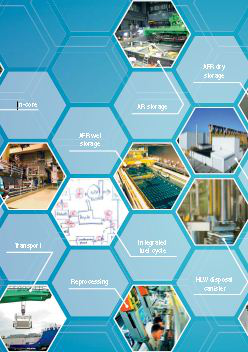Speaker
Dr
SUNG IL KIM
(Korea Institute of Nuclear Safety)
Description
This study examined the current status of spent fuel management in Korea and the process of building public opinion that is currently underway to determine the final national policy for spent fuel.
Spent fuels generated in the PWR plants are stored in a spent fuel pool for each unit. To date, almost all PWR plants continue to implement measures to address the lack of storage capacity such as installing storage racks additionally, installing high-density storage racks or transferring spent fuels to the spent fuel pool of other neighboring units. Spent fuels generated in PHWRs which are Wolsong Units are stored in spent fuel pools for longer than six years and then transferred to the dry storage facility on site.
The Nuclear Energy Promotion Commission decided on the “Execution Plan for Spent Fuel Management Plan” in the 2nd meeting held on November 20, 2012 and setting a direction for developing a spent fuel management plan as follows: (1) put safety first (2) develop short-, mid- and long-term management plans (3) prepare supporting measures which can be accepted by the general public to ease the burden borne by future generations and local residents. At the same time, it was decided to form and run a public engagement commission so as to develop a management plan while securing the highest possible level of acceptance.
On October 30, 2013, the Public Engagement Commission on Spent Nuclear Fuel Management was lunched and embarked on public engagement activities with an aim of presenting recommendations on the method for managing spent fuel to the government by late 2014. Therefore, a national policy, strategy and management plan for spent fuel will be presented in detail in the Basic Plan for Radioactive Waste Management where the results of above-mentioned public engagement activities will be incorporated.
This study is expected to transfer experience of and lessons from determining national policy to countries that have not established their final management policy for spent fuel, based on Korea’s solutions to shortage of spent fuel pools and the formation of national consensus.
Country/ int. organization
Korea/KINS
Primary author
Dr
SUNG IL KIM
(Korea Institute of Nuclear Safety)

